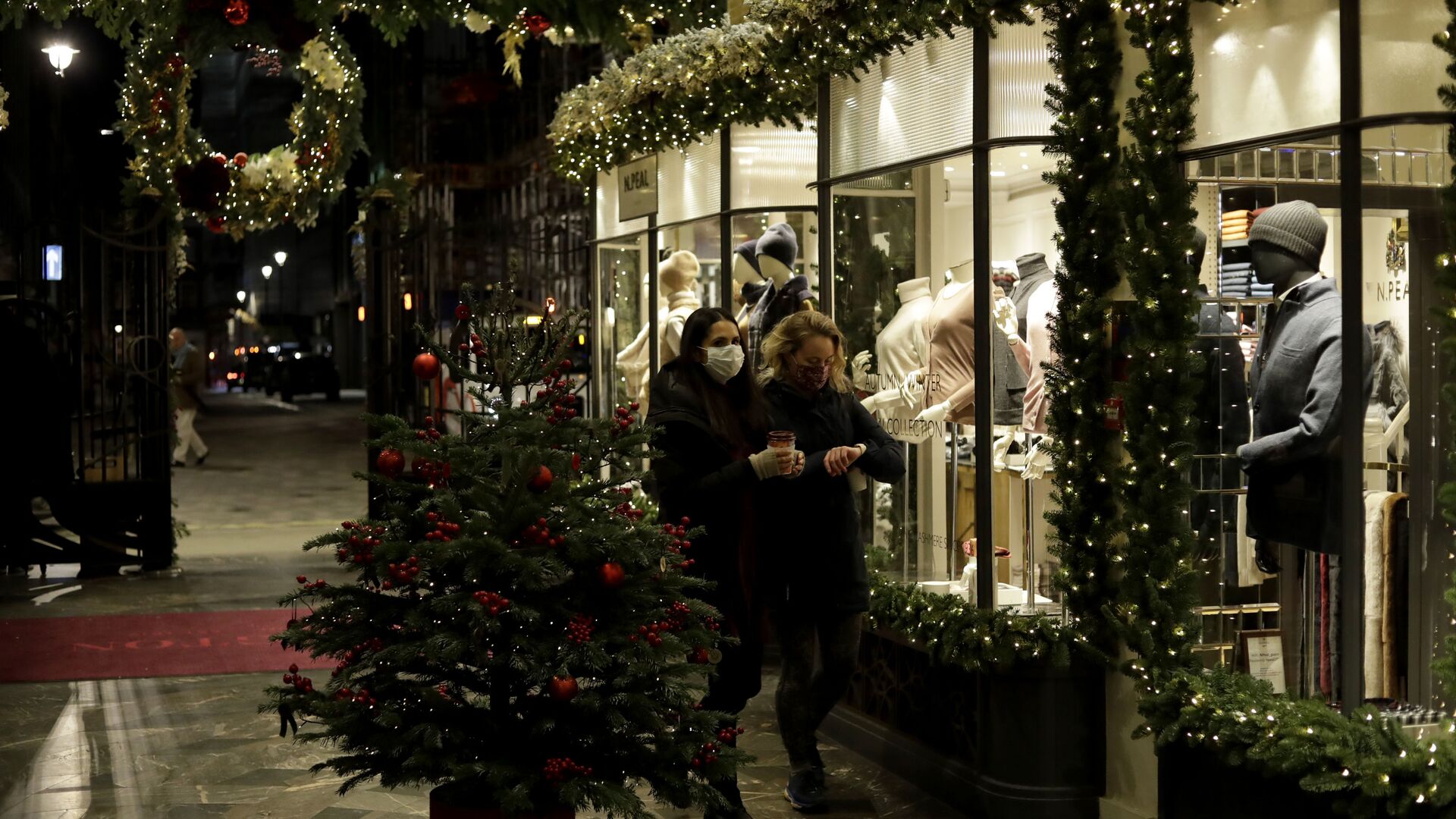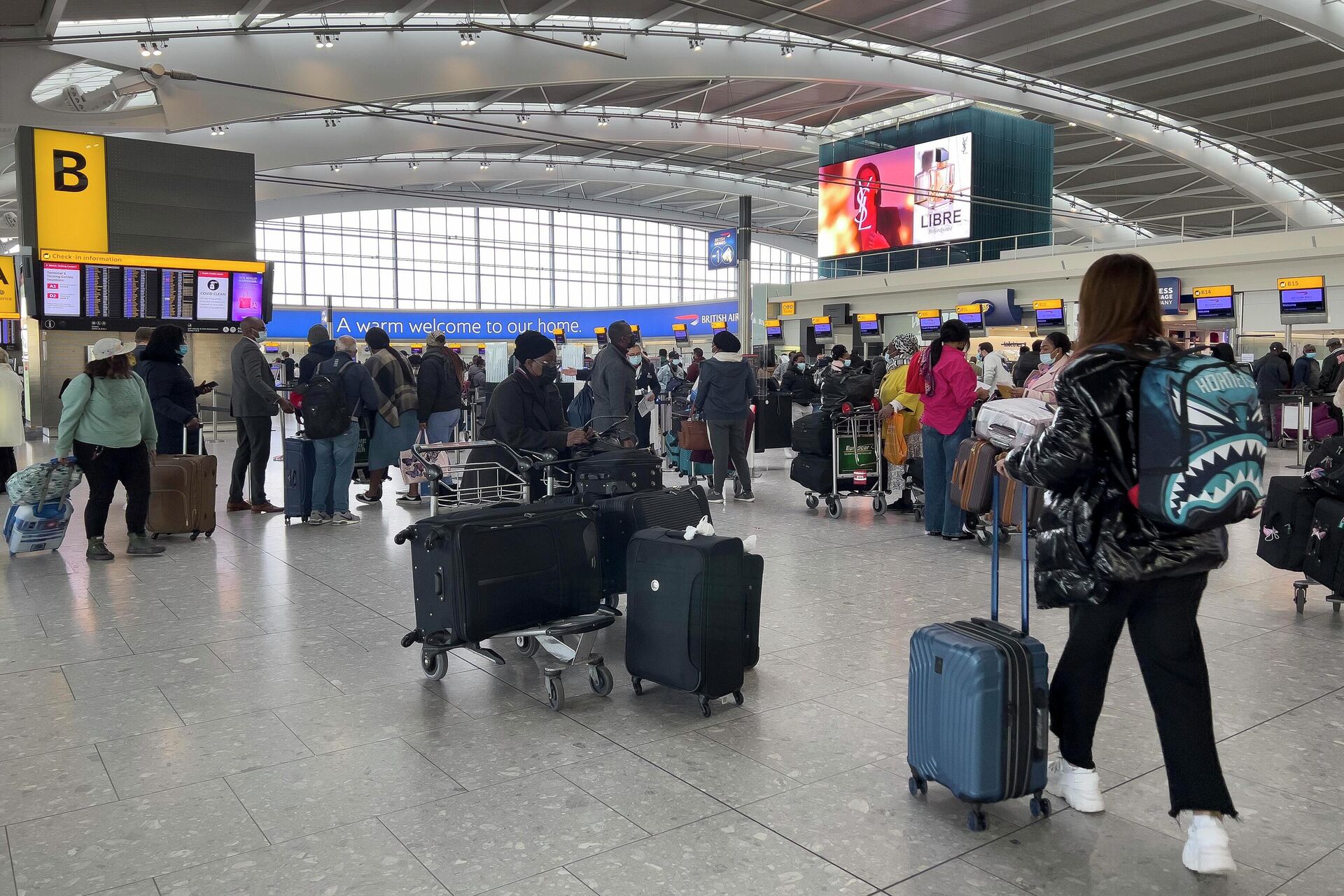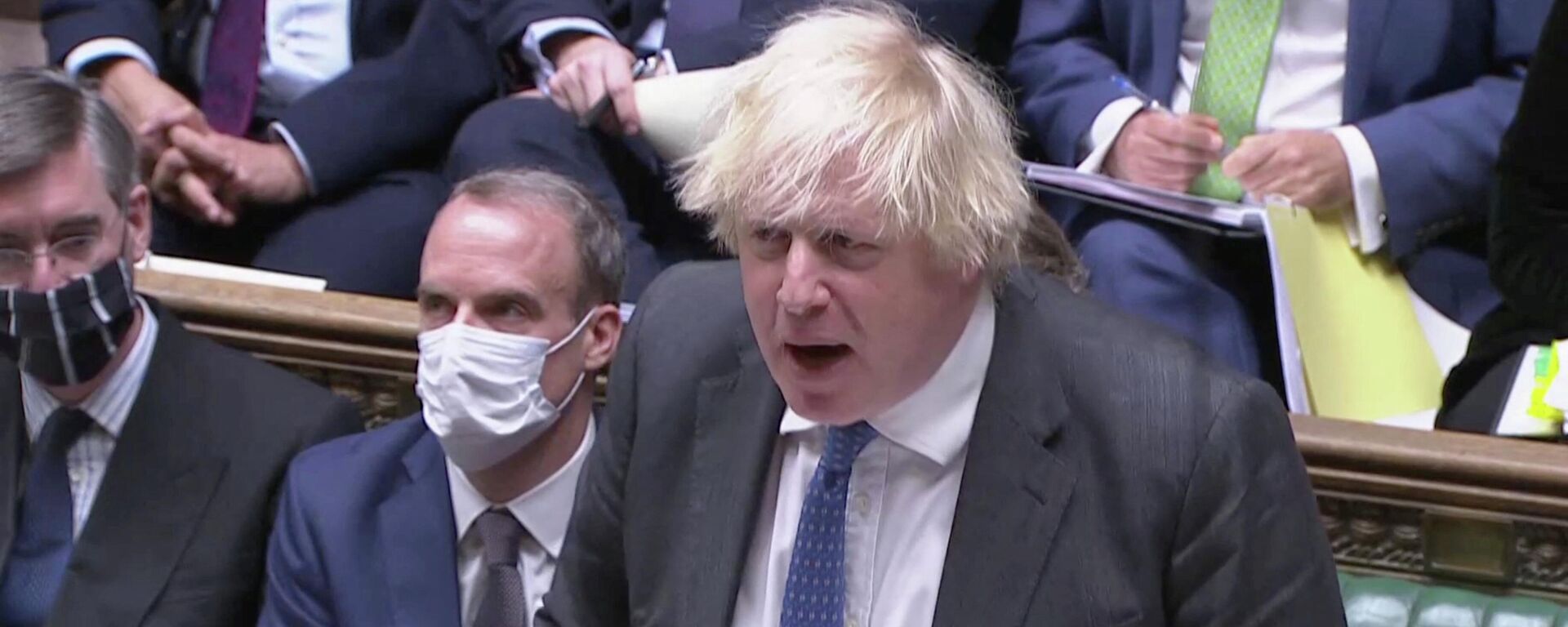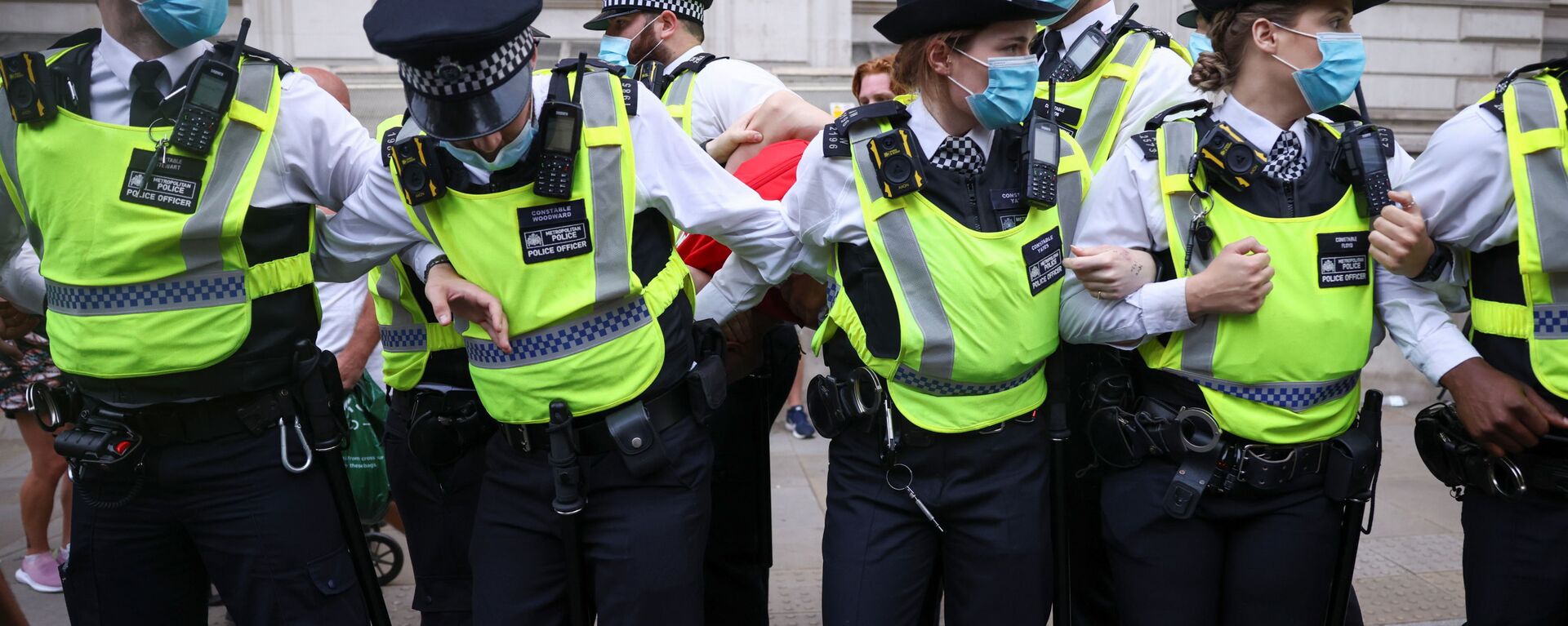UK Scientists Warn of Daily COVID Surge to Two Million Unless New Curbs Introduced Before New Year
05:46 GMT 19.12.2021 (Updated: 15:17 GMT 28.05.2023)

© AP Photo / Matt Dunham
Subscribe
Earlier, reports suggested that UK cabinet ministers were drawing up proposals for a post-Christmas two-week “circuit breaker” lockdown to slow the spread of the Omicron variant of the coronavirus. As of 17 December, the number of confirmed cases of the Omicron strain stood at 24,968, Britain’s Health Security Agency announced on Saturday.
The UK government’s leading scientists have warned that unless tougher restrictions are immediately brought in to curb the spread of the coronavirus, the daily number of infections could reach between 600,000 and two million by the end of the month, reported The Guardian.
The Scientific Pandemic Influenza Group on Modelling (SPI-M-O) scientists, who report to the Scientific Advisory Group for Emergencies (Sage), have weighed in on the threat posed by the fast-spreading Omicron variant of SARS-CoV-2.
United Kingdom Daily Coronavirus (COVID-19) Report · Saturday 18th December.
— UK COVID-19 (@UKCovid19Stats) December 18, 2021
90,418 new cases (people positive) reported, giving a total of 11,279,428.
125 new deaths reported, giving a total of 147,173. pic.twitter.com/KyfLaq3Ffi
The group that gives expert advice to the Department of Health and Social Care and wider UK government based on infectious disease modelling and epidemiology is reported as estimating that hospitalisations could peak to reach between 3,000 and 10,000 per day. Daily potential deaths from the respiratory disease are estimated at between 600 and 6,000 unless urgent action is taken before the New Year.
According to the UK health security agency (UKHSA), the number of Omicron cases recorded across Britain hit almost 25,000 by Friday evening - an increase of more than 10,000 cases from 24 hours earlier. Acting upon recommendations from experts, Sage urged Prime Minister Boris Johnson’s government to reintroduce “more stringent measures … very soon”, according to the minutes of its meeting on 16 December.
“The timing of such measures is crucial. Delaying until 2022 would greatly reduce the effectiveness of such interventions and make it less likely that these would prevent considerable pressure on health and care settings.”
The advisers are cited as touting measures “equivalent to those in place after step 2 or step 1 of the roadmap in England” this spring. At the time, the “rule of six” was in place as a way of controlling the spread of coronavirus in England. It prohibited social gatherings of more than six people. The measures also involved only two households meeting, holidays abroad were banned, and only one regular visitor was allowed for care-home residents. The current Plan B for dealing with COVID-19 infections this winter involves mandatory introduction of health passes - proof of double-vaccination or a recent negative test - to enter nightclubs, big sports matches and other large events.
Sage scientists have warned that while COVID-19 vaccination is important in mitigation efforts, “crowded indoor mixing with many different groups remains the biggest risk factor for spread. Large gatherings present a risk for multiple spreading events.”
The medical advisers are also cited as modelling the impact on the spread of the coronavirus from measures imposed under step 1 of the UK roadmap last spring. If they were to be introduced now, it is suggested that daily infections could be limited to between 200,000 and a million. At that rate, hospitalisations are estimated at between 1,500 and 5,000 admissions a day, with a potential daily death toll at 200 to 2,000.

Passengers queue to check in, at Heathrow Airport in London, Monday, Nov. 29, 2021.
© AP Photo / Frank Augstein
Amid a soaring number of cases, government ministers were told by scientists on Saturday that to curb airborne transmission of COVID-19, wearing of face masks in places where the balance of risks and benefits did not previously support it, such as primary schools, might be reexamined now. Furthermore, the nature of the face coverings was singled out as important at this stage, with scarves, single-layer fabrics and valved masks believed to be ineffectual at slashing transmission.
This comes as Whitehall officials are cited as dismissing speculations of any new COVID-19 measures being announced at the current stage. Boris Johnson faced the largest rebellion of his premiership last week when he introduced “plan B” measures, prompting 99 of his MPs to oppose him; the PM has baulked at taking any more unpalatable decisions.
"We don't know enough yet about how serious this is going to be… we need to see the impact of Plan B and boosters," a Whitehall source was cited by Sky News as saying.
According to a cited Tory MP, tougher COVID-19 measures could trigger a "pretty nuclear" reaction among backbenchers.
Ex-chief whip Mark Harper was cited as dismissing scientific modelling as "garbage in, garbage out - because the assumptions are not based on evidence". "The modelling ahead of us opening up was all way too pessimistic," another Conservative MP was quoted as adding.
Nevertheless, amid dire warnings made by medial advisers, a Cobra meeting with the devolved nations on Sunday will be discussing whether or not a joint response to the threat of the Omicron strain of the virus is needed, stated Downing Street.


